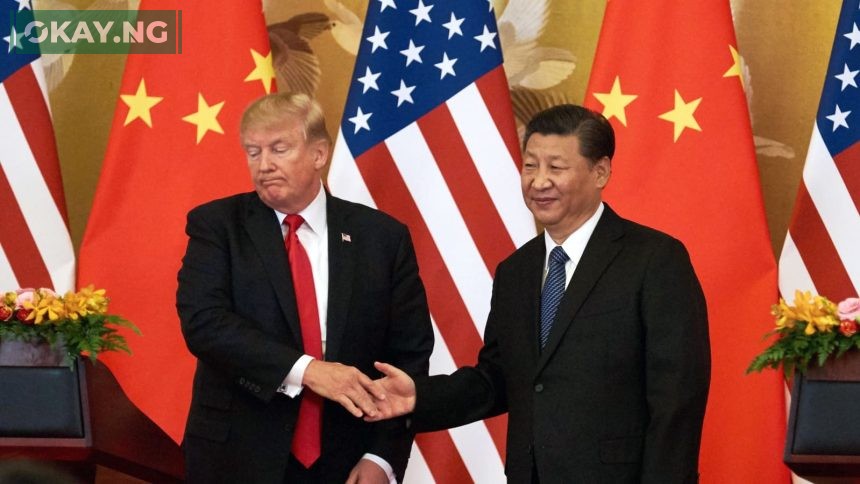In a dramatic escalation of the ongoing trade dispute, China has announced it will impose increased tariffs of 125% on American goods, effective Saturday, April 12, 2025. This move comes as a direct countermeasure to the U.S.’s recent aggressive trade policies, notably President Donald Trump’s implementation of universal tariffs against China, totaling 145%.
This latest development signals a deepening rift between the world’s two largest economies, with potentially significant repercussions for global trade. “The U.S. alternately raising abnormally high tariffs on China has become a numbers game, which has no practical economic significance, and will become a joke in the history of the world economy,” a spokesman from China’s Commerce Ministry stated, dismissing the U.S. tariffs as economically frivolous.
Despite this strong rhetoric, China’s stance remains resolute. The Ministry has reaffirmed its commitment to defending national interests and countering U.S. actions decisively. “If the U.S. insists on continuing to substantially infringe on China’s interests, China will resolutely counter and fight to the end,” the spokesman added.
Furthermore, China has announced plans to file a fresh lawsuit with the World Trade Organization (WTO), challenging the legality of the heightened U.S. tariffs. This legal action underscores China’s commitment to utilizing international mechanisms in its fight against what it perceives as economic aggression.
Interestingly, President Trump announced a 90-day pause on newly implemented reciprocal tariffs affecting dozens of trade partners, except China, just hours after they took effect. This policy reversal, which lowered tariffs for 56 countries and the European Union to a baseline of 10%, signals a major shift in the administration’s trade strategy after mounting pressure from global markets, business leaders, and investors concerned about recession risks.
Read Also: Trump Reverses Course on Tariffs, Markets Surge Amid China Tensions
The exclusion of China from this pause further intensifies the bilateral trade conflict. As an experienced news writer, I can attest that these kinds of volatile shifts are becoming a hallmark of this ongoing economic battle.
Economists predict heightened uncertainty and potential disruptions to international supply chains as both nations continue to take combative measures against each other. The ripple effects of these intensified tariffs are expected to reverberate through global markets, potentially impacting businesses and consumers worldwide.
This countermeasure by China demonstrates its determination to assert its economic sovereignty while underscoring the potential for prolonged tension in the global trade arena. The ongoing trade war serves as a stark reminder of the delicate balance of international trade and the potential for economic conflict to escalate rapidly.













